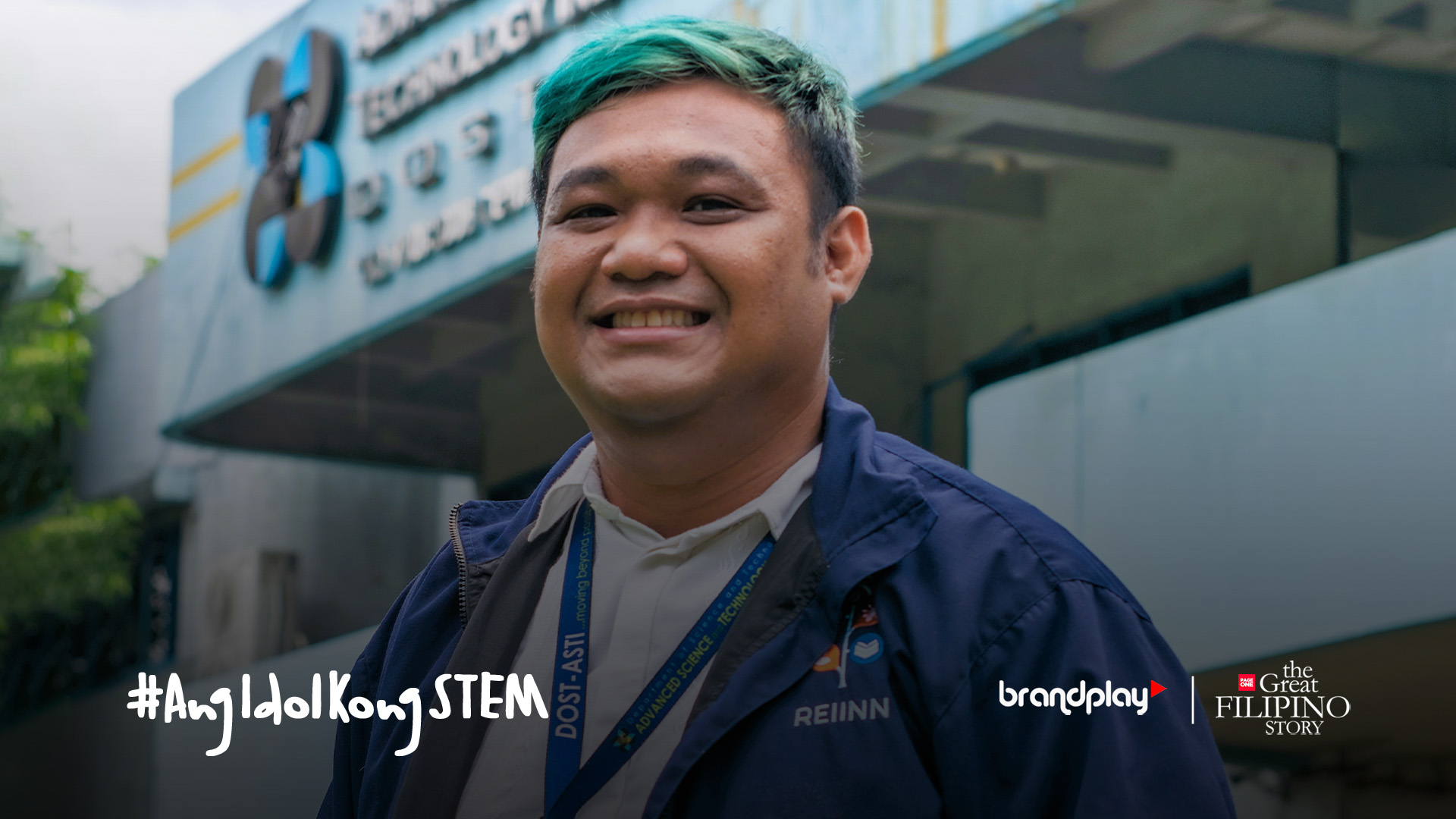Growing up, Engineer Philip Martinez never envisioned himself becoming a scientist. “Back when I was a tiny boy, I was really curious about how things worked, but I never really imagined myself pursuing a scientific career,” he admits. Like many young students, his path to science wasn’t always clear. It was only during high school, when faced with the anxiety of choosing a college course, that he reflected on where his strengths lay. “I excelled in mathematics and science, and I enjoyed doing lab experiments in school,” Philip recalls. This realization eventually led him to pursue a degree in Electronics and Communications Engineering at UP Diliman.

However, it wasn’t smooth sailing from the start. As he juggled heavy schoolwork, Philip questioned why he was putting in so much effort. “I had a question: ‘Parang ang dami kong ginagawang school work and stuff, bakit at para saan, bat ba ko nagpapakahirap?’ But over time, as my teachers explained how our work was used and how it benefited society, I gradually developed an interest in what I was doing in engineering, specifically in electronics and communications engineering.”
One of the most pivotal moments in Philip’s career was his thesis project, which aimed to tackle traffic problems using technology. This project, coupled with his membership in the Wireless Communications Engineering Laboratory at UP, where they focused on solving issues like the digital divide, solidified his commitment to using his knowledge for the betterment of society. The “digital divide”—the gap between those with and without access to modern communications technology—remains a significant challenge in the Philippines, and Philip’s work focuses on bridging that gap.

Currently a Senior Science Research Specialist at DOST-ASTI, Philip leads research projects aimed at providing technological solutions to remote communities. His work, particularly during the pandemic, highlighted the importance of access to online learning. He shares a heartwarming anecdote about a young student from a remote area who, through their technology, was able to virtually visit the National Museum in Manila. “One student used the technology to visit the National Museum virtually, even though their location was far from Manila. The student said, ‘Wow ang ganda, parang, sir gusto ko rin na ganito ang ginagawa ko in the future.’ That statement was a validation that our work and technology can inspire students to pursue careers in STEM,” Philip reflects.
His projects don’t just bring technology to the underserved—they connect people in profound ways. In one remote village in Aurora, a mother, for the first time, was able to video-call her husband, who was working abroad. “There was a parent who video-called her husband abroad, and he was surprised, asking, ‘Uy, paano kayo nakapag-video call sa lugar namin?’ It was the first time their child saw their father, even if it was just through a screen. Witnessing that moment made me realize the significance of our work,” Philip shares.
Despite the challenges, including hazardous fieldwork and freak accidents, Philip’s dedication never wavers. “During a previous project, our boat malfunctioned, and I had to jump out and swim to safety, which left me with burns. Such accidents make you think about the lack of protection for science workers facing hazards. But ultimately, when you think about the people you’re helping, that’s what keeps you going,” he says.

His message to young people is simple: “Don’t be shy to ask questions, and always stay curious. Lagi nilang sinasabi na wala namang stupid questions, oo, siguro ano lang, hindi lang maganda yung pagkaka-phrase kaya nagmumukha siyang stupid question, but I believe that there are no stupid questions, just stupid answers.”
Engr. Philip Martinez, a licensed Electronics Engineer and UP Diliman graduate, now leads the REIINN project at DOST-ASTI and teaches at both UP Diliman and Ateneo de Manila University. His dedication to science and education is further exemplified through TEKhasa, a workshop series he co-founded, which brings technology education to aspiring engineers and scientists.
Through his work, Philip Martinez exemplifies how science and technology can change lives, one connection at a time.




